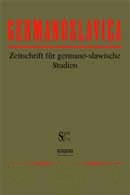Wie aus Král King (Kong) wurde. Die ,sozialpartnerschaftliche Ästhetik‘ in Robert Menasses Schubumkehr
From Král to King (Kong): ‚Aesthetics Based on Social Partnership‘ in Robert Menasse´s Schubumkehr
Author(s): Dana PfeiferováSubject(s): Literary Texts
Published by: AV ČR - Akademie věd České republiky - Slovanský ústav and Euroslavica
Summary/Abstract: Robert MENASSE, who holds a doctorate in German Studies, holds a certain amount of influence on contemporary Austrian literature not only due to his role as a writer. In his essays on cultural policies he adds to Claudio MAGRIS’ and Ulrich GREINER’s theses on idealization or standstill as characteristics of Austrian literature the feature of conflict deficit, which he traces back to the undemocratic institution of social partnership. This conflict deficit does not only influence literary topics but also the structure of texts written by Peter HANDKE or Thomas BERNHARD which are highly repetitious and use monotonous language. To give further examples Menasse as a writer constructs his books along the theories of his literary alter ego. In Selige Zeiten Brüchige Welt for example conversations in a café are used to connect former nazis and Jewish emigrants showing a small model of Austrian society located in Brazil, in his Czech-Austrian novel Schubumkehr two concepts of Austrian postwar society are evident: aesthetics based on social partnership and the travesty of the Second Austrian Republic.
Journal: Germanoslavica
- Issue Year: XXIII/2012
- Issue No: 1
- Page Range: 100-106
- Page Count: 7
- Language: German

